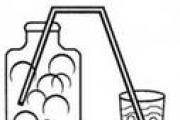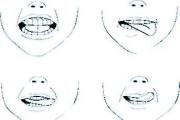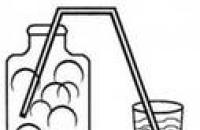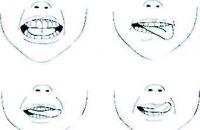Lee Iacocca was born in 1924 (October 15) in Allentown (Pennsylvania, USA). His parents were Italian immigrants. After school, Lee began studying at Lehigh University, then transferred to Princeton University. After receiving his education, Lee Iacocca began working at Ford as an engineer, and after some time moved to a management position. During Lee Iacocca's tenure, the company developed the Ford Mustang and Ford Fiesta. Lee promoted auto loans to increase his company's sales. But, despite his high successes, on July 13, 1978, he was fired by the president of the company, the grandson of Henry Ford (Henry Ford II). The reason for his dismissal was the unsuccessful development of the Ford Pinto, which could explode if crashed into its rear part, where the gas tank was located. At that time, Lee Iacocca became one of the best managers in the United States.
At the same time, another automobile giant, Chrysler, was on the verge of bankruptcy. Lee Iacocca headed this company until 1995, and during this time he managed to achieve significant financial improvements and lead Chrysler out of the crisis.
In the 80s of the 20th century, Lee Iacocca began to write autobiographical books, describing his achievements, mistakes and sharing his experiences with readers.
Book output:
Iacocca, L., Whitney, K. Where have all the leaders gone? / L. Iacocca, K. Whitney; translated from English – S.E. Borich – Minsk: “Medley”, 2008. – 320 p.
The main idea of the book
The author dedicated this book to the problem of leadership in the United States. He analyzes the current economic and political situation and states the fact that there are catastrophically few leaders. In the book, Lee Iacocca explains how to develop leadership skills and effectively apply them in practice.
Lee Iacocca also writes this book as a kind of instruction for the future to descendants, in which he conveys all his life experiences from childhood to retirement.
Chapters: Brief summary
The idea of the first chapter runs through the entire book: a leader can be “calculated” by 9 important indicators: Curiosity, Creativity, Communication, Character, Courage, Conviction, Charisma, Competence, Common Sense. It's worth going into a little more detail about each concept, as they run throughout the book.
Curiosity: this is the desire to listen to the opinions of not only comrades, but also opponents. “If a leader never leaves his comfort zone to listen to other opinions, he becomes out of shape” (2, p. 15)
Creation: This is the willingness to change and change course under changing conditions. “George Bush boasts that he will never change his views even if the world collapses.” (2, p. 15) A true leader will manage a changing situation.
Communication skills: This is the ability to perceive reality and speak openly about it to people, and the most difficult thing is to tell the truth about this reality.
Character is the ability to distinguish between good and bad, and to have the courage to follow what is right.
Courage- this means “He must be a real man” (2, p. 18). This is the courage to express your position, negotiate, defend your opinion.
Conviction is a passion, a desire to accomplish something.
Charismatic– “this is the ability to inspire” (2, p. 19). Lee Iacocca defines it as people's faith in the leader.
Competence is knowledge of what a leader should do. Be able to perform the tasks that a leader must perform.
Common sense is the ability not only to perceive reality, but also to act in accordance with this reality. Distinguish between primary and secondary tasks, set priorities, strive for the best for people and for yourself.
In the second chapter, Lee Iacocca writes that in any business, two factors are important - people and priorities. Whatever you are at the head of, these 2 components will determine the success of management. We need people who are competent in what they do, talented and willing to work. Lee Iacocca gives the example of the US government - almost none of the people know their names, because... George Bush likes to recruit his acquaintances to top positions. And "if you have necessary people, then this will make it easier for you to formulate the right priorities” (2, p. 36). And vice versa.
To run a company you need a business plan, and you need a plan to run a country. It is important to set national priorities, and Lee Iacocca advises doing this in writing. Demand from each candidate for the elections (2008 then) 3 of his priorities, and 3 measures to achieve this.
In chapter five (How Much Do We Love Democracy?), the author says that the United States is striving to establish democracy in other countries, but Lee Iacocca argues that it is worth taking a closer look at our own country first. Democracy means free elections and freedom of speech.
The US has the lowest turnout in elections - 45%. In some countries, participation in elections is mandatory, otherwise fines will apply. According to Lee Iacocca, this serves as a reminder that “Freedom is never free” (2, p. 56).
In addition to voting, residents of a democratic country have freedom of speech. Lee Iacocca cites the example of John Martha, who was not afraid to speak negatively about the war in Iraq because people were dying, but it was too early to discuss this. Then the government began to insult and humiliate him in every possible way. Perhaps we can add to this what the author noted at the beginning - curiosity. George Bush vetoed a bill only once during the history of his presidency, because... he does not tolerate among those around him the opinion of others other than his own, and if it appears, it is easier to immediately denigrate the author of the statement than to listen to the opposite opinion.
Therefore, the author seeks to motivate Americans to go out and vote, but before doing so, carefully weigh the decision. The future president of the United States was supposed to be a leader who would deal with real problems. And Lee Iacocca gives the reader the opportunity to analyze each of the candidates using 9 criteria.
I note that among such candidates is Barack Obama, who became president. The author said that he may be incompetent, since he has not yet proven himself, but, as it turned out, Obama copes with the presidential role quite well.
I would like to cover the sixth chapter very briefly, because... It is important for further understanding of the book. The chapter discusses American political issues, particularly those of allies and adversaries. Iacocca says that we need to clearly understand who is our friend and who is our enemy. The author cites the example of France, which remains a friend of the United States, but if a country does not support the president’s regime, this does not mean that it refuses to be an ally.
Lee Iacocca also regrets the situation with Cuba. He is confident that the time has come for negotiations, because it is wrong not to communicate with the country because of the old ideology.
Moral - it is important to navigate the situation, and not just adhere to ideology, even if it has become obsolete.
Chapter eight (What are we willing to do for oil?) seems to me quite important, because... boldly reveals the truth about US government and politics.
The United States strives to have oil-producing countries as its comrades, and the war in Iraq, according to the author, is also because of oil. In addition, the government employs people who are in one way or another connected with the oil industry. Lee Iacocca asks: What is the US energy policy? Naturally, meetings are held on this topic, but the data is confidential, the meeting takes place over several days, on one of the last days the state of affairs is discussed with scientists who are developing alternative energy sources, and what is discussed on the remaining days is a mystery. It is known that such companies as “ExxonMobil”, “Conoco”, “Shell”, BP are present at them. Most likely, the discussion at the meetings was about Iraqi fields.
The author also talks a lot about Bush's associates: Dick Cheney, the former head of Halliburton, Condoleezza Rice from the board of directors of Chevron, Don Evans, Lawrence Lindsay, James Baker, Samuel Bodman - all of them are somehow connected with the oil business.
Lee Iacocca also touches on the problem of global warming, and the fact that we waste oil instead of looking for an alternative does not affect nature in the best possible way. This is an energy crisis, and only a leader can do something to solve it.
Call for victims– use cars less.
Introduce a tax on gasoline– the USA has the lowest prices in the world for non-gasoline
Use tax money to develop alternative energy sources
Break up the oil cartel
Raise standards– use lighter cars
The mobility and inconsistency of team composition in street football gave many of its participants the opportunity to demonstrate and, therefore, develop their leadership qualities. Often the situation required the manifestation of these qualities even from those in whom they were weakly expressed due to age or character traits (modesty, indecisiveness, etc.). This gave impetus to the development of leadership qualities, at first sporadically (when older, more authoritative players were absent), and then, as experience gained, more often. This, of course, applies to those who had the makings of a leader, and it was they who became the “stars.” In addition, a huge number of different teams (small and large, permanent and random in composition) gave many boys the opportunity to demonstrate their leadership qualities, because for each of them there was always a small team where they could really be leaders.
Well, what about our organized football? Here everything is the other way around! Instead of creating conditions for the development of leadership qualities for as many boys as possible who have the makings of leaders, we deprive them of such an opportunity at the age of 7-8, concentrating them from neighborhood teams into various more or less prestigious clubs and football schools. It is not difficult to realize that by gathering potential leaders with still emerging leadership qualities into a general group of 20 people, we leave the opportunity to develop these qualities to only one of them, thus losing 19 potential leaders and reducing their number to 20 once! Then, at the age of 12-13, those few who showed their leadership qualities in these new teams are collected again, creating for them “more Better conditions"in stronger clubs or SDYUSHOR, for example, such as our St. Petersburg "Smena" and "Zenit", again reducing the possibility of leaders emerging by 20 times! Well, when at the age of 14-15 those promising boys who are so "scrupulously" were selected, become “suddenly” unpromising - they are exchanged for those who survived after the two previous “creative selections”, once again collecting new “leaders” from the so-called “grassroots collectives” formed there. We can continue further, but if Even if we limit ourselves to the above, we can say: no matter how many talented boys we have, we will still ruin them. Indeed, with such a statement of “things” in our children’s football, by the age of 16, there remains approximately 8 thousand times (! ) !) there are fewer potential leaders than there would be in street football! I think, taking into account such “high” indicators, we should not be upset that we are not among the 16 best teams in Europe and are being eliminated early from the European cups We should be glad that we are still taken seriously in some places (though this is also thanks to the merits of Russian football in past years).
Conclusion: in the matter of developing leadership qualities, “organized football” is clearly inferior to “yard” football. Moreover, it loses not only in terms of quantity, but also in terms of quality. The yard environment, in contrast to the “organized” one, is immeasurably more diverse and serious, situational episodes in it are not controlled “from above” and the leader has to rely only on his own strength, and this is a key point in the formation of real leadership qualities.
Minsk: Medley. — 320 pp. The book consists of four parts (expressed in specific questions).
Part I - “Where have all the leaders gone?” Main idea: “The country is in a very deplorable situation and the main reason is the lack of Leaders. In politics, religion, business and other areas.” The author regrets that there are no Leaders in the country now and gives his opinion about who a Leader is and what qualities he has. The topic of Leadership is addressed clearly, understandably and to the point.
Part II - “Where have all our friends gone?” Very interesting thoughts about America’s friends, why they are friends with it, what they value about it. I really liked the following thoughts from the author: “Relationships are built on equality and respect. Someone else’s position is not a reason for insults” and “Acknowledging others’ right to their own point of view is not a sign of weakness.” There are also topics here: “friendship is oil”, “friendship is free trade”, “friendship is high fences”
Part III - “Has capitalism failed us?” Lessons of capitalism for today: about where all the money goes, about the crisis of corporate America, about the negative experience of the Chrysler merger, who will save the middle class, about the murderous energy of mutual accusations.
Part IV - “Can America regain its former greatness?” -Aren't we getting too fat? (about the obesity of the nation, about tablet forms of treatment for all diseases); - Give us back the ability to think (about education and the intellectual level of the population with very interesting statistics, that the book - best teacher); — About the people who taught Lee Iacocca leadership; - Stop playing golf and do something; Here we also talk about what Iacocca does in retirement - philanthropy, about the need for everyone to repay debts to society and how to do this (secretly: such debts can be repaid not only with money). The fourth part sums up the results and in it, on every page, there is wisdom, and not even just one. An excellent distillation of human experience and common sense. There is an excellent example of self-realization - the highest human need. In general, the book gives a clear picture of the relationships in society and the economy: the price of a car and the presence of trade unions, the quality of school education and the country’s place on the world stage, the education of the president and the policies of the ruling elite. And also in the book: meetings with US presidents and Fidel Castro, the author’s own presidential ambitions, intelligence in business, leadership, charity, the action to save the Statue of Liberty, education, food and Labor in all its manifestations. The book incredibly expands your horizons.
I really want to end the review with a relevant quote: “It doesn’t take a genius to understand that a nation in which many overeat, swallow medications indiscriminately, sit for hours watching TV, listen to music through headphones around the clock, experience a morbid passion for shopping, will not achieve much success.” . If we really hope to regain our former greatness, then it’s time to get to work.”
Reviewer I. Khamov.















